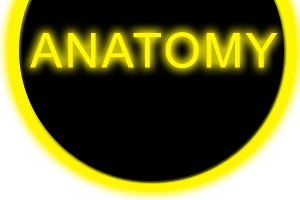| |
The first thing you need to know about your anatomy, is what happens to the food you eat.
You put food in your mouth and chew. The more you chew the better as the saliva will add some enzymes to the food (very important.)
The food then enters the stomach and sits there for up to an hour in a belly thats used to enzyme rich food, as little as a few minutes for one that isn't.
Acid is then injected to dissolve the remaining food, heartburn is the reaction to too much acid being produced! What else can the body do? Throw up?
The food enters the small intestines where bile is added in controlled amounts by the gallbladder, fed by the liver.
The pancreas plays the bulk of it's role here by secreting digestive enzymes to break down the food further. The other role of the pancreas is to secrete specific enzymes out of the other end for parts of the body that need them. (This end of the pancreas is often removed by surgeons!)
Nutrients in the intestines are allowed to pass through the intestinal wall, into the bloodstream to areas where needed and the surpless is mainly stored by the liver.(The liver is known to have some 200 functions and as the 2nd biggest organ displays its importance.)
After about 2 and a half days in the intestines, the waste and indigestable items enter the colon. The colon arches over the intestines and is a big muscle that contracts to squeeze out the waste. The muscle is involuntary, you just have to let it happen. But as we have learned to suppress the urge we often need to strain a bit to start it off. Overstraining is a sign of an unfit colon.
Don't worry, the body is capable of fixing all these things with a few laxative herbs and some tissue soothing and regenerative herbs.
Hormonal System - Endocrine System
Much is unknown about the Hormonal System, new hormones are still being found and many more are expected.
The hormones are created by the different Endocrine glandes for specific parts of the body with specific instructions. They are governed by the Pituitary Gland at the base of the Brain. It decides which Hormones to make and by how much.
Hormones rule our daily lives, our energy, hunger and passions. Their effect on our bodies musn't be overlooked, especially if we are healing.
We need to spend time with people, the closer the better.
What you do with these people will determine what sort of hormones will be produced. A game of rugby would certainly produce a lot of testosterone where as having your face painted would produce more estrogen. But as there are countless activities you can do with other people so are the countless Hormones to be produced.
It may make sence for a man with obvious effects of too much estrogen to take part in more aggressive activities in favour of testosterone production. Or for a woman becoming more masculine to take part in more feminine activities. But on the whole do what you feel like doing as this will be your body talking to you.
All this could lead to much more than just feeling good over long time periods, it could lead to evolution!
The location of the endocrine glands are very similar to the Chakras, (focus points in meditation for acheiving enlightenment) and if all are in balance, will we as humans be able to utilise our brain to its full capacity?
The Penial Gland is very close to the Pituitary Gland and is known to be essential for extrasensuality and is also known to be blocked by the Fluoride in toothpaste and tap water.
|
|

